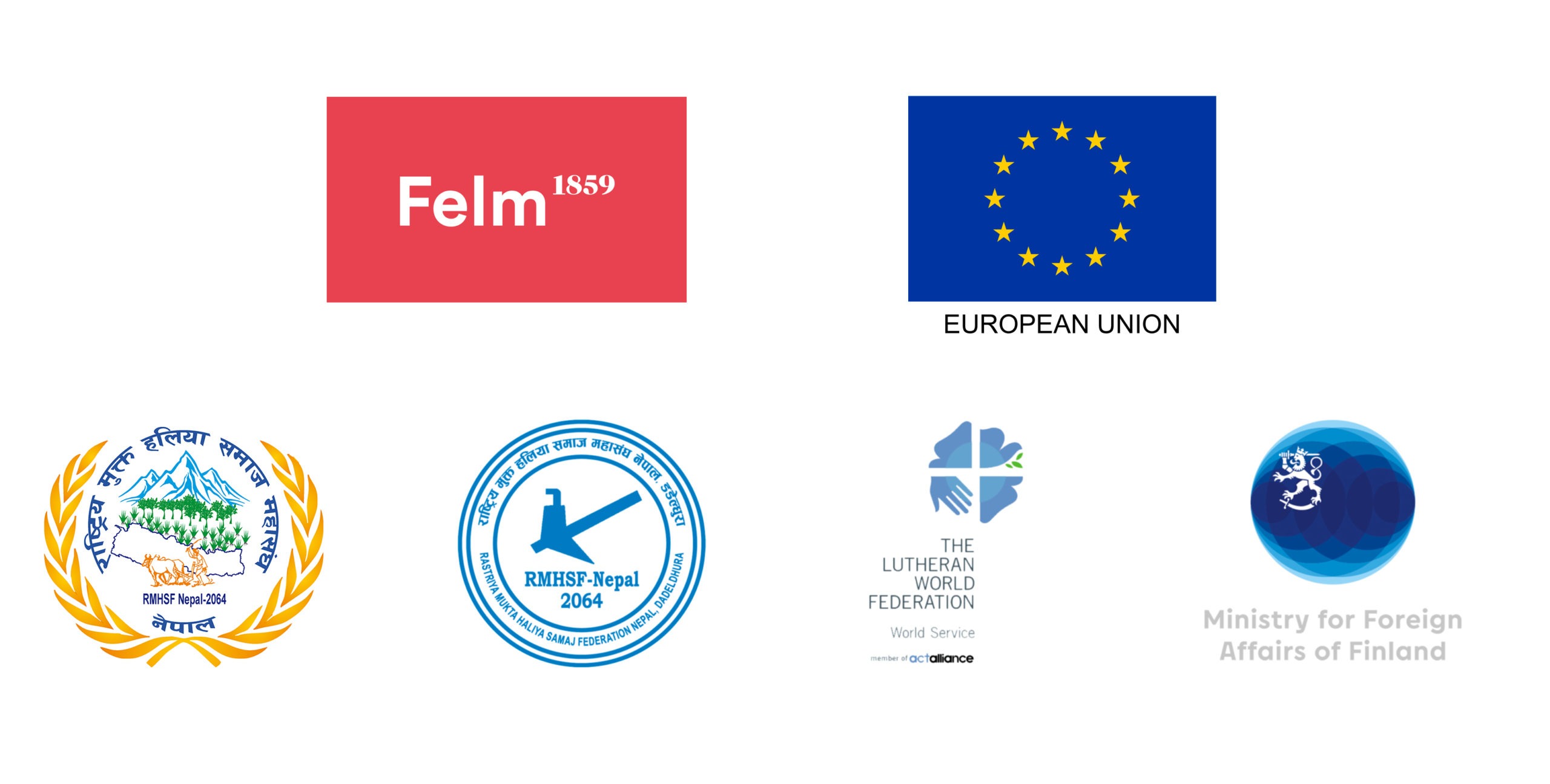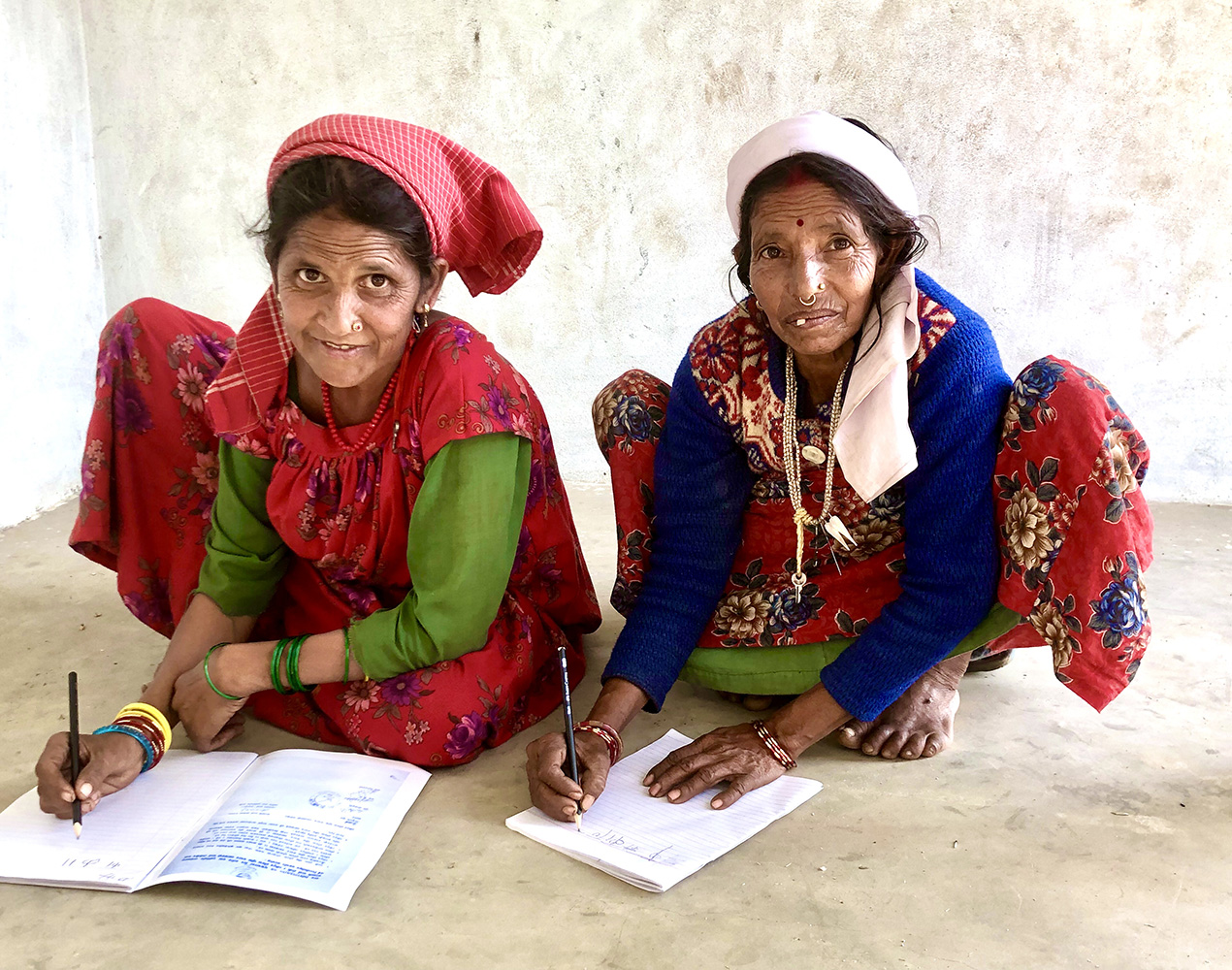March 30, Kathmandu: A new report, called the ESCR Yearbook 2021, is being launched on 31st March 2022, presenting the situation of freed Haliyas, Nepal’s ex-bonded laborers, of five districts of Sudurpaschim Province under four major Economic Social & Cultural rights (ESCR). These are right to education, right to health, right to decent work and right to housing/rehabilitation services.
“The book will serve as a reference to all stakeholders to understand better the severity of issues and challenges faced by freed Haliyas and to adopt concrete measures to address these,” said EU Ambassador to Nepal, H.E. Nona Deprez.
Traditionally, Haliyas have worked on other people’s land, in slave-like conditions with little or no pay. In 2008, the Haliya system was abolished, but freed Haliyas remain discriminated.
One of the key findings of the report was that only one third of the respondents have received any rehabilitation package from government. Even amongst those who have, only 15% consider it sufficient. Regarding right to health, 91% of Haliya women reported that they did not receive health related information during the pandemic, owing to the inaccessibility caused by discrimination in health services. 40% witnessed increased violence during the pandemic. The COVID-19 situation made things worse also in terms of education, as distance or virtual learning was feasible for only 1% of the respondents.
The findings of the report are based on the data and evidence collected through an innovative mobile app representing 2,567 households. For this first phase of the survey, the data is collected from the community members, and next year it will represent the duty-bearers’ perspective.
The research concludes that the human rights of freed Haliyas are far from being realized. The study allows to draw evidence-based recommendations for duty-bearers and other stakeholders for immediate action and enhanced effort in fulfilling human rights of freed Haliyas.
Freed Haliya Empowerment project is being implemented in collaboration with four organizations: Felm, The Lutheran World Federation and the Nepalese Campaign for Human Rights and Social Transformation Nepal (CAHURAST) and Rastriya Haliya Mukti Samaj Federation Nepal (RHMS-N). The project is co-funded by the European union and the Finnish Ministry of Foreign Affairs.
Defending and promoting human rights and democratization is an integral part of the EU-Nepal cooperation. Since 2003, the EU has been supporting civil society organisations and human rights defenders in Nepal.
You can read the ‘ESCR Yearbook 2021‘ report here.
Report launch event
Venue: Hotel Ambassador, Lazimpat, Kathmandu
Date: 31st March, 2022,
Time: 2:30- 5:00 PM
Contact details
Nikita KC, Communications and Visibility Officer, Freed Haliya Empowerment project (Felm Nepal), tel. 9801284473, nikita.kc@felmglobal.org


